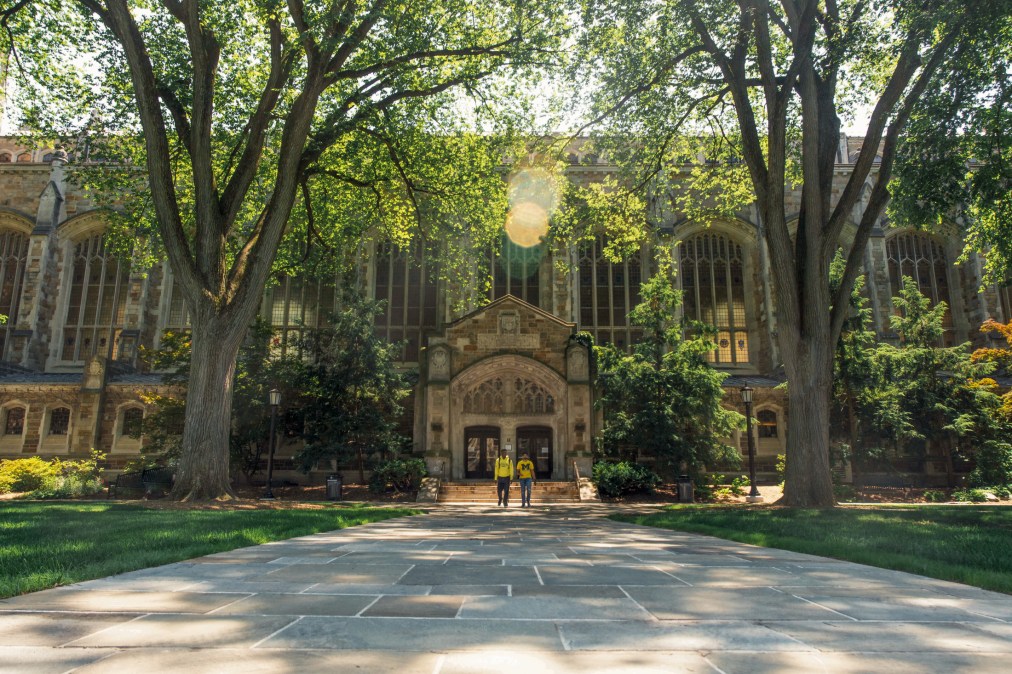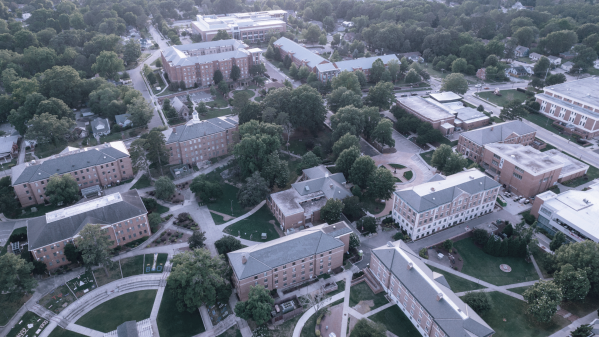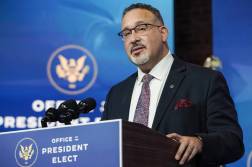How technology boosts U. of Michigan’s education abroad program

Technology has far-reaching impacts on university campuses. At the University of Michigan, this extends to our education abroad work, where we have invested in application management solutions to address classic decentralization challenges, enhance efficiency and reduce redundancy.
More than 5,000 students from the University of Michigan participate in an education abroad experience each year, traveling to more than 140 countries spanning traditional for-credit programs as well as internships and project-based learning opportunities. And our co-curricular participation continues to grow more than 10 percent each year. Education abroad program administration is complex at any school but it is especially critical at our large public research university because our education abroad operations are decentralized and growing.
Overcoming decentralization challenges
The challenge of administering programs for so many students is heightened because education abroad operations at our large public research university are decentralized. Rather than one single education abroad office, our academic schools and colleges run their own operations to best meet the needs of their disciplines and students. This can lead to wide variabilities in programs, from different application timelines to diverse methods for unpacking the study abroad experience when students return to campus. To help administer the application and approval process for these programs we use an application management platform developed by Terra Dotta. This helps ensure we have the same processes, requirements, documentation and approvals for all of our students’ travels.
A decentralized education abroad model allows each of our 19 academic units to create programs that are closely aligned with students’ interests. It also affords our faculty greater flexibility and creativity in developing programs that align with their expertise and ensures they can serve students at various points throughout their educational journeys.
But decentralization also comes with challenges. Larger academic units such as our College of Literature, Science and the Arts and the Ross School of Business offer more expansive menus of opportunities than some of the smaller schools and colleges. Having a centralized application management solution focused on education abroad helps catalogue our options, makes it easier for students to find programs outside their home departments, and ultimately expands their choices.
There are also staffing challenges. Some education abroad offices are operating with a single person while others have teams with as many as 14 full-time employees dedicated to program management, application review, pre-departure preparation, and other tasks. Access to Terra Dotta facilitates consistent processes across offices regardless of staffing levels.
In addition, offering a single technology platform for managing international programs enables us to provide students with accurate and consistent information related to health, safety and security – all of which are vital to ensuring that students have a successful education abroad experience. In our case, Terra Dotta facilitates the sharing of resources in an effort to avoid “recreating the wheel” in each education abroad office.
Collaborating through technology
Leveraging technology to unify education abroad management can help run more cohesive programs across numerous schools and colleges. For example, our Terra Dotta system offers Michigan students a one-stop shop to search for international opportunities as well as identify sources of funding for participation.
It also helps broaden students’ horizons as they can browse the portal by country or subject to discover opportunities across campus or beyond their own major area of study. Offering students a consistent application experience sets the expectation that all applicants are held to the same standards, regardless of program or sponsoring office.
Our system provides baseline application elements across campus, including a suite of common application questions, legal forms, and student travel guides. At the same time, we are able to honor unit-level autonomy by allowing for customized application materials and learning content needed by particular disciplines.
We have found that using an application management platform for education abroad also helps us foster collaboration among stakeholders in various departments. For example, when one office develops content for pre-departure programming — including online tools, student handbooks or case studies — others can view these resources and avoid starting from scratch. The materials are shared in the system and can be adapted to different programs and needs.
Building connections
Technology is a great enabler, but it still needs to be combined with efforts to build person-to-person connections.
Creating a cross-campus group of visionaries and advisors has helped build cross-campus collaboration. The University of Michigan’s Council on Global Engagement, or CGE, grew from a Study Abroad Council convened to increase student participation in education abroad. Appointed by deans, CGE members include faculty and professional staff from academic departments, the registrar’s office, financial aid, risk management, university health services and other vital areas. They meet monthly to evaluate policies and problem-solve in a room where all perspectives are represented. It’s an effective way to constantly remind folks of the expertise that exists across campus.
The university also offers grants to faculty and staff to build collaborative resources for international programs. One group of faculty and staff used a grant to create an interactive online tool to promote resilient travel. Another group of collaborators created a massive open online course dedicated to ethical and sustainable global engagement, which has already served thousands of learners on the University of Michigan campus and worldwide.
Not all cross-campus collaboration needs to be formalized. Some of the best teamwork arises from organic, informal relationships. We create opportunities for people to discover other interesting and committed colleagues through education abroad-focused professional networking gatherings, workshops or roundtable discussions.
Everyone involved with education abroad at University of Michigan aims to provide safe and excellent educational experiences for our students. Each academic unit may differ in how they accomplish these goals, but bringing people together to create best practices, share expertise and leverage technology helps us deliver on these core commitments to our students.
Amy Conger is the associate vice provost and director of global engagement at the University of Michigan.




